Church Origins Collection (10 vols.)
Digital Logos Edition
Overview
Church Origins Collection captures the earliest development of the church in history, theology and theory. The ten volumes offered explore the cultural, doctrinal and traditional landscape of the budding church. These include the church’s roots in and relationships with the Graeco-Roman, Judaic, and Mesopotamian worlds; its integration into African and European cultures; its ministerial life and doctrines; and more.
Written by top scholars of the New Testament, each title presents state-of-the-art scholarship and keen insight into the origins of the Christian church. The volumes focus not only on where the church has been, but the implications of that history on our present era. This includes the contemporary view of the role of elder in the church, the ordination of women, and charismatic gifts.

- Title: Church Origins Collection (10 vols.)
- Publisher: T&T Clark
- Volumes: 10
- Pages: 3,230
This title is included in the following collections
You can save when you purchase this product as part of a collection.
Logos 5 Portfolio Legacy Libra...
$4,749.99$4,749.99
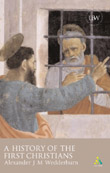
This work provides a survey of the history of the earliest Christian church in the period up to the fall of Jerusalem. It concentrates on: the figure of Paul; judicious and critical use of information in the Book of Acts; Judaizing versions of Christianity; and the Johannine tradition.
The author’s approach steers a middle way between an over-simplified account which fails to warn students where scholarly opinion is divided, and an in-depth academic study which attempts to document and discuss every hypothesis. Wedderburn focuses on aspects of central importance: the changing shape of church life and developing Christianity in relation to the Roman Empire and to Judaism. This volume seeks to draw together and make more readily accessible many new insights gained from an enormous range of recent scholarly studies in German and English, and places them in the context of a more general account.
Alexander J. M. Wedderburn is Professor of New Testament in the Evangelisch-Theologische Facultat, Ludwig-Maximilians-University, Munich.
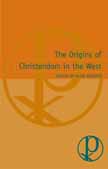
For well over a millennium the civilization of Western Europe was “Christendom.” Christianity was the dominant religion, buttressed by social and legal structures. This volume studies Christendom at its origins, bringing the insights of leading scholars in the fields of ancient history, theology, patristics, and liturgy to bear on aspects of Europe's Christianization.
From a missiological perspective, the contributors ask what is Christianity's impact upon culture, what is culture's impact upon Christianity? Focusing on the first four centuries, but also looking forward to the future of Christianity in the West, this volume combines scholarly excellence with accessibility. It will be valued by scholars and students alike.
After more than fifteen hundred years, “Christendom” remains a highly charged word. This bold and imagination volume helps explain why. Drawing on the resources of theology, history, sociology and missiology, these students of the history of early Christianity challenge old interpretations and propose new ways of seeing.
—Wilbert R. Shenk, Fuller Theological Seminary
Dr Alan Kreider was Director of the Centre for the Study of Christianity and Culture, Regent’s Park College, Oxford, and now teaches at the Associated Mennonite Biblical Seminary, Indiana.
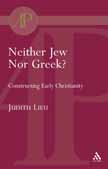
In this volume, Judith Lieu explores the formation and shaping of early Christian identity within Judaism and within the wider Graeco-Roman world in the period before 200 C.E. Bringing to bear the latest analytical methods, she particularly examines the way that literary texts presented early Christianity. She combines this with interdisciplinary historical investigation and interaction with the most recent work on Judaism in late Antiquity and on the Graeco-Roman world.
The result is a very significant contribution in four of the key questions in current New Testament scholarship: how did early Christian identity come to be formed; how should we best describe and understand the processes by which the Christian movement became separate from its Jewish origins; was there anything special or different about the way women entered Judaism and early Christianity; and how did martyrdom contribute to the construction of early Christian identity?
A wonderfully learned volume… Judith Lieu’s capacity to hold together biblical, Jewish and patristic material commands respect, and she is an authority on the borderland between early Christianity and Judaism.
—Stuart G. Hall, Theology
For both its content and scholarly method, Neither Jew Nor Greek? is a must for any theological library.
—Mary Coloe, Austrailian Biblical Review
Judith M. Lieu is Professor of New Testament Studies, King's College, London.
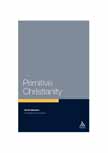
This is a critical account of the state-of-the-art of scholarship in earliest Christianity, and where and how it should move forward. It offers an authoritative account of contemporary scholarship and evaluates the work of all major scholars in the field, from Britain, America and around the world, as well as a critical analysis of all the published writings in Early Christianity over the last 25 years of the 20th century. Gerd Lüdemann evaluates all the contributions and defines the most significant areas for future research.
Scholars of primitive Christianity will profit from Professor Lündemann’s incisive comments on whether or not recent studies enrich our historical knowledge.
—Heikki Räisänen
Gerd Lündemann is Professor of New Testament at the University of Gottingen and the author of Virgin Birth? The Real Story of Mary and Her Son Jesus.
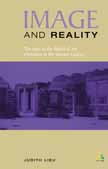
Judith Lieu examines the rhetorical function of Jews in the early texts of the second century and seeks to acknowledge the complex nature of an issue which is too easily proclaimed “Christian anti-Semitism.”
This is an outstanding study of attitude of early Christians to their Jewish neighbors. Professor Judith Lieu’s book is a landmark in studies of second-century Christianity. She wears her immense learning lightly: her book will be treasured by scholars and students alike.
—Graham Stanton, University of Chicago
…an outstanding book on a relatively neglected subject… The book is wide-ranging, rich in detail, acute in its perceptions, and subtle in its argumentation – essential reading for those who wish to probe beneath superficial accounts of Jewish-Christian relations in the early period.
—Stephen G. Wilson, Carleton University
This is an impressive work: subtle, learned and possessing an admirable clarity throughout. It should be welcomed by all who study Jewish-Christian relations, as well as those scholars and students specializing in the second century. It should prove an excellent and indispensable model for those intending to examine this subject in the future.
—Justin Meggitt, University of Cambridge
Lieu’s evocative study is both a rich treatment of the role of the Jewish other in the development of early Christian self-definition, and a bold attempt to define an aspect of the rhetoric which was to provide the basis for centuries of Christian discourse.
—David Satran, Hebrew University of Jerusalem
Judith M. Lieu is Professor of New Testament Studies, King's College, London.
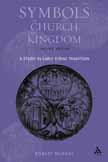
This volume is a study of Syriac Christianity up to the early fifth century C.E.: its beliefs and worship; its life and art. In this classic work, Robert Murray offers the fullest and most vivid picture yet available of the development and character of the culture, illustrating both its original close relationship to Judaism and its remoter background in Mesopotamian civilization. He is interested in the subsequent influence of Syriac Christian culture, particularly on European literature.
The Introduction locates Syriac as an Aramaic dialect, then traces the origins of Syriac Christianity, its relationship to Jewish Christianity and the Syriac Bible version, the character of Syriac asceticism (including Marcionism and Manichaeism), and of the Christian schools. Key Syriac terms are explained, and all citation of Syriac texts throughout the work are given in translation either by other scholars or by the author. The second part of the introduction reviews the literature studied in the following chapters, concentrating on Aphrahat and Ephrem.
This volume deals with a topic of interdisciplinary importance, at the cultural crossroads of the ancient and medieval worlds of east and west, and of Christianity, Judaism and Islam. It will be of interest to a wide range of scholars and students.
A superb work.
—Wayne A. Meeks, Yale University
This scrupulous book with an unfailing historical sense is alive to the language of the Late Romans, laying bare with sympathy the way in which Syriac-speaking Christians spoke of the Church.
—The New York Times Review of Books
Robert Murray, a Jesuit priest and former lecturer in Heythrop College (University of London), is also the author of The Cosmic Covenant: Biblical Themes of Justice, Peace and the Integrity of Creation.
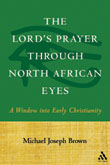
Michael Brown’s volume helps to explain why Christians throughout the ages have interpreted texts differently, especially cultic texts. Beginning with an imagined Graeco-Roman auditor of the Lord’s Prayer, Brown demonstrates how a Graeco-Roman’s understanding of the prayer would have been different from that of a Hellenized Jew in Palestine. Brown takes the reader into discussions of early Graeco-Roman Christians regarding prayer in general and the Lord’s Prayer in particular. Focusing on cultic didachai of Clement of Alexandria and Tertullian of Carthage, The Lord’s Prayer through North African Eyes is a window into the turbulent and sometimes confusing world of second-century Christianity in Africa.
The Lord’s Prayer through North African Eyes is an original and important contribution to scholarship on early Christian prayer. Brown’s thorough reconstruction of the social context of early Christian teachers like Clement of Alexandria and Tertullian of Carthage, as well as of their distinct appreciations of the Lord’s Prayer, is a model of scholarly precision and imagination.
—Luke Timothy Johnson, Emory University
Michael Brown is one of the most creative scholars of early Christian studies around. His book… opens new and profound perspectives on the most famous Christian prayer.
—Adela Yarbro Collins, Yale University Divinity School
Michael Joseph Brown is Assistant Professor of New Testament and Christian Origins, Candler School of Theology, Emory University in Atlanta, Georgia. He is the author of What They Don’t Tell You: A Survivor’s Guide to Academic Biblical Studies.
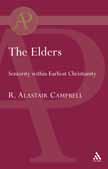
This is a groundbreaking study of the origins of the Church’s ministry, which focuses on the significance and role of the elders in the social world of the New Testament. Alastair Campbell challenges the consensus view among Protestant scholars of this and the last century that the elders were the holders of a definite office derived from a similar office in the synagogue. As such, they have often been seen as the representatives of a system of government which was the antithesis of the charismatic order of the Pauline churches.
The Elders demonstrates that, throughout the ancient world, among the Greeks as well as the Jews, “the elder” was a title of honor, not of office. This impressive term, collective and representative, and rooted in the ancient family or household, is here traced from the Old Testament, through the life and institutions of Second Temple Judaism and the Graeco-Roman world of the first century and through the evidence of the New Testament. Campbell discovers and describes a compelling pattern of consistency, rather than diversity, in the development of the Church’s ministry.
This investigation not only clarifies many issues in the long-running debate about charisma and office in the early church, but contributes to the contemporary debates about charismatic gifts, the ordination of women, and the search for a mutual recognition of ministries within the ecumenical movement.
R. Alastair Campbell was formerly Tutor in New Testament at Spurgeon’s College, London.
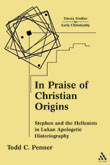
Almost all scholars look to Acts 6:1–8:3 as providing the bedrock of early Christian tradition. The incident between the Hebrews and the Hellenists are understood to reflect real historical and theological problems in the early Jerusalem community, demonstrating the Hellenist role as a historical bridge between Jesus and Paul.
Penner’s study challenges the fundamental assumptions of this approach. He emphasizes the rhetorical and moral dimensions of ancient historiographical theory, especially the centrality of narrative and plot, the use of vivid description, the application of comparison using various type-scenes, and the role of speeches in terms of characterization and the presentation of narrative style.
Steeped in the writings of ancient Greek, Roman, Hellenistic, and Jewish historians, Penner employs his impressive skills of interpretation to produce a ground-breaking study of Stephen and the Hellenists in Acts. He shows that Luke, like other ancient historians, was less interested in historicity than in writing a persuasive narrative. Penner’s study will almost certainly encourage his peers to consider new approaches to the study of the Acts of the Apostles.
—Joseph B. Tyson, Southern Methodist University
Todd Penner is the Assistant Professor of Religion at Austin College and the co-editor with Caroline Vander Stichele of Contextualizing Acts: Lukan Narrative and Greco-Roman Discourse.
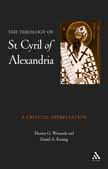
There is no book in English that treats the whole of Cyril's theological thought. In the past scholars have normally focused on Cyril's Christology and left largely unexamined the remainder of his theological thought. Thus the English-speaking scholarly community has never fully appreciated the breadth, the depth and the immense significance of Cyril's theology.
This volume is therefore unique. The editors have brought together many of the foremost experts on Cyril. This international team examines all the major facets of his theology, and here for the first time reveals the theology of Cyril of Alexandria as a magisterial whole.
Thomas G. Weinandy is the Executive Director of the Secretariat for Doctrine and Pastoral Practices of the United States Conference of Catholic Bishops. Formerly, he was Warden of Greyfriars Hall and Lecturer in History and Doctrine in the Faculty of Theology, Oxford University.
Daniel A. Keating teaches at Sacred Heart Major Seminary, Detroit.